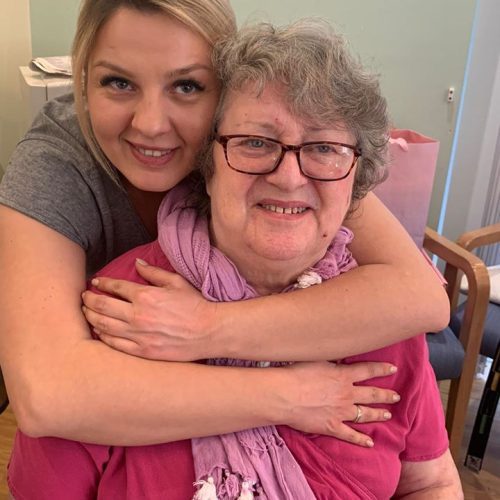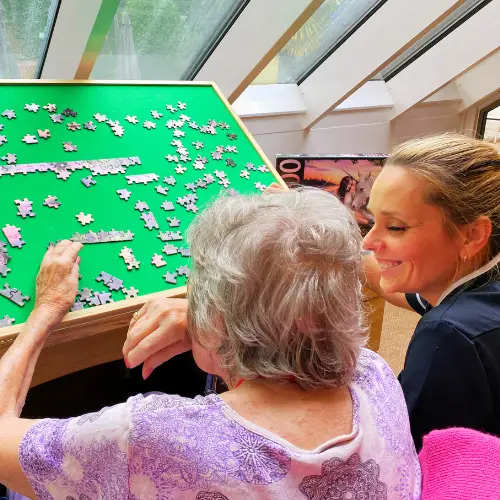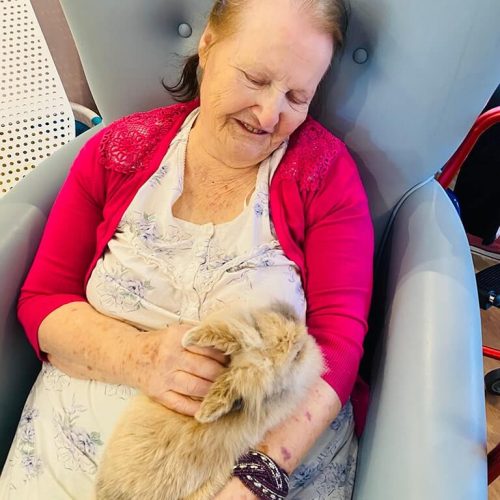The Stages of Dementia: What to Expect

Dementia is a well-known term and one that most people will have a general understanding of. However, following a diagnosis, many people are unaware of the detailed progression of the stages of dementia.
As a degenerative condition that affects cognitive functions such as thinking and behaviour, there are several significant stages as the condition progresses. Understanding each stage allows you, as family members, to emotionally and mentally prepare for the changes in symptoms. It can also help you create a care plan and implement therapies to try and slow the progression down.
At LuxuryCare, we are dementia care specialists with in-depth knowledge and understanding of the conditions, their progression and how care needs change as the symptoms develop. In this blog, we explain the different stages of dementia, detailing how symptoms and care changes with each step.
Early Stage
While there are several common types of dementia, each with varying symptoms, the stages tend to follow a similar path.
Early stages of dementia are often referred to as mild dementia. This is when the symptoms are subtle and can be misinterpreted as part of ageing.
These symptoms can include:
- Mild memory loss
- Difficulty with complex tasks
- Changes in mood or personality
Your loved one displaying these symptoms is usually still able to remain independent, but additional support might be required to help them through daily activities.
Care needed for this stage would be minimal as you want to encourage your loved one to continue stimulating their brain and remain independent.
Care might include:
- General support with daily activities
- Note-making of tasks or calling to make sure they have completed certain things, such as eating
- Emotional support might be needed following a diagnosis
- Encouragement to maintain social connections and not withdraw from friendships or hobbies
- Starting to implement memory care and games
- Introducing a set daily structure and routine
- Helping them plan for the future


Middle Stage
The next stage of dementia is called moderate dementia. At this stage, your loved ones’ symptoms become more obvious.
Symptoms may include:
- Significant memory loss – loss of recent memories
- More confusion
- Difficulty recognising familiar faces
- More difficulty with everyday tasks
- Frequent agitation
- Wandering around more
Throughout this stage of dementia, you still want to encourage your loved one to stay as independent as possible. However, care needs will have increased slightly.
Care may now include:
- More assistance with daily tasks
- Managing incontinence
- Meal preparation and monitoring
- Ensuring a secure and safe environment to reduce wandering
- More supervision to prevent falls
- Increase memory games and therapies to keep the brain engaged
- Simpler and shorter communication
- Consistent routines
- Medication management
At this point, you might also need to start thinking about including respite care in your care routine. This could be in the form of home carers, specialist dementia day care centres, or day care at a care home.
Late Stage
The final stage of dementia is known as severe dementia.
This, as you would probably guess, is the most progressive stage of dementia, requiring the most care.
Symptoms for this stage include:
- Loss of communication
- Becoming unaware of surroundings
- Severe memory loss – forgetting personal history
- Significant reduction in mobility and motor skills
- Assistance for daily activities
- Increased aggression and agitation
- Hallucinations and delusions
- Loss appetite
- Difficulty swallowing
- Disrupted sleep
The final stages of dementia will require full-time care and significant levels of assistance with most activities.
Care needs will likely include:
- Assistance with personal hygiene and grooming
- Incontinence care
- Assistance with eating and drinking
- Pressure ulcer prevention
- Monitoring wandering and restlessness
- Medication management
- Simplified communication
- Sensory stimulation
Care for severe dementia can be full-on, so similar to the moderate dementia stage, if you are a full-time carer for your loved one, you might want to consider respite care as this will help reduce the chances of burnout and allow you time to take care of your own mental and physical health.


Care For Stages Of Dementia At LuxuryCare
After a dementia diagnosis, no matter what stage your loved one is at, you might decide a care home would provide the best care for their needs.
There are specialist dementia care homes, such as our LuxuryCare homes, across Poole and Bournemouth. These will provide bespoke care that is geared towards the unique symptoms of dementia and slowing the progression of the condition.
We are proud to offer specialist dementia care at our homes with fully-trained staff who are passionate about enhancing your loved one’s quality of life despite the stages of dementia.
The layout of our homes and facilities are all dementia friendly, with memory boxes and door plaques of each of our residents and colourful images and themes around the garden for residents to recognise each area.
In designing our care homes, we paid special attention to lighting, signage and visual cues to make it easier for your loved one to move around the home in a safe way and be able to recognise where they are.
We take a holistic approach and implement a person-centred approach. To achieve these, we will complete a thorough care needs assessment after your loved one’s admission but before they move in. From this, we will create a bespoke care plan that meets their unique needs. This plan will be flexible and ever-changing, reflecting the progression of the stages of dementia.
If you think your loved one might be safer or receive more timely and effective care at one of our care homes, we recommend that you arrange a short respite care stint so your loved one can experience life at our care home before moving in full-time.
We also recommend a tour of our home to see our facilities and meet some of our staff and residents.
Call us on 01202 037373 to discuss your loved ones’ needs or book a visit to one of our care homes. Alternatively, complete our online contact form, and we will get in touch with you.














